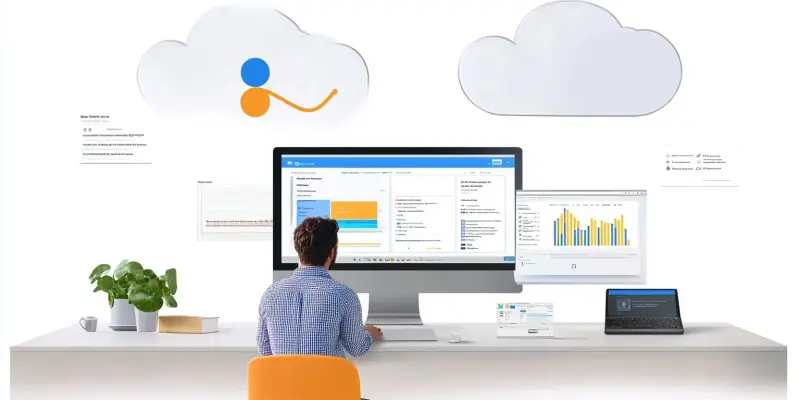In an era where technology evolves at an astonishing pace, Microsoft’s decision to phase out sales and support for Dynamics GP marks a significant shift in the enterprise resource planning (ERP) landscape. The journey, which began in 1993 with the launch of Dynamics GP, is now set to transition fully to the cloud. With the cessation of new perpetual licenses starting this year, and full discontinuation of all licenses by next year, the move demonstrates a tangible shift in Microsoft’s strategy towards cloud-based solutions. Companies currently utilizing Dynamics GP are urged to reevaluate their technology strategies to ensure continuity and leverage the advanced capabilities of modern ERP systems.
Implications of the Phase-Out for Businesses
The imminent termination of Dynamics GP sales and support means businesses relying on this solution must begin planning their transition strategies. Although systems may remain operational for a few more years, the reliance on third-party consultants for support will escalate costs and increase risks. By the end of 2029, all product enhancements, updates, and technical support will cease, followed by the end of security patches by the middle of 2031. For businesses, this phase-out necessitates a strategic pivot to avoid disruption and safeguard their operations against heightened vulnerabilities. Proactive planning is essential to mitigate these challenges.
Transitioning to Dynamics 365 Business Central, Microsoft’s cloud-based ERP solution, offers a host of benefits including continuous improvements, sophisticated AI tools, and seamless integration within the extensive Microsoft ecosystem. Migrating to a cloud-based ERP system ensures that businesses stay updated with the latest innovations without the overhead of managing on-premise solutions. Additionally, the flexibility and scalability of cloud solutions enable organizations to adapt to rapidly changing market conditions and drive efficiency across operations.
Exploring Alternatives to Dynamics GP
While Dynamics 365 Business Central remains a primary recommendation for existing Dynamics GP users, businesses can also explore other modern ERP solutions tailored to diverse needs. Logan Consulting, for instance, partners with NetSuite and Acumatica, offering robust and scalable alternatives for businesses seeking flexibility and advanced functionality. These cloud-based ERP platforms provide comprehensive features that address various aspects of business operations, from financial management to supply chain planning. The shift towards these solutions aligns with the global trend of embracing cloud technology to drive efficiency and innovation.
Evaluating different ERP options involves a thorough analysis of organizational requirements, budget constraints, and future growth projections. Businesses must consider the specific needs of their industry and how each ERP solution can address these requirements. Engaging with a consulting partner can facilitate this process, providing expert insights and guidance on selecting and implementing the most suitable solution. The goal is to ensure a smooth transition that aligns with long-term business objectives and enhances operational efficacy.
Strategic Transition to Modern ERP Systems
To ensure a seamless transition from Dynamics GP to a modern ERP solution, businesses must adopt a strategic approach. This involves conducting a comprehensive assessment of current systems and processes, identifying gaps, and determining the most suitable ERP solution that meets both present and future needs. Engaging stakeholders across the organization is crucial in this phase to ensure that all perspectives are considered and that the chosen solution aligns with overall business goals. An effective transition strategy also includes a detailed implementation plan, clear communication, and meticulous change management to minimize disruptions.
Training and support are integral to maximizing the benefits of the new ERP system. Investing in comprehensive training programs ensures that personnel across all levels of the organization are well-versed in utilizing the new system to its full potential. Additionally, maintaining a robust support structure during and after the transition period is vital to address any challenges and ensure a smooth operational flow. The ultimate aim is to harness the capabilities of modern ERP systems to drive operational excellence and competitive advantage.
Embracing the Future of ERP
In an age where technology evolves at an incredible speed, Microsoft’s choice to discontinue sales and support for Dynamics GP marks a notable change in the enterprise resource planning (ERP) domain. Starting its journey in 1993, Dynamics GP has been an essential tool for many companies, but the shift towards cloud-based solutions is now inevitable. This year marks the end of new perpetual licenses, and by next year, all licenses will be fully discontinued. This move clearly signals Microsoft’s strategic pivot towards advanced cloud-based ERP systems. Businesses currently relying on Dynamics GP are strongly encouraged to reassess their technology strategies. They need to ensure they remain up-to-date with modern ERP capabilities, which offer enhanced functionalities and efficiencies. The transition to cloud solutions is not just about keeping pace with technology, but also about leveraging new opportunities for innovation and growth in an increasingly digital world.

